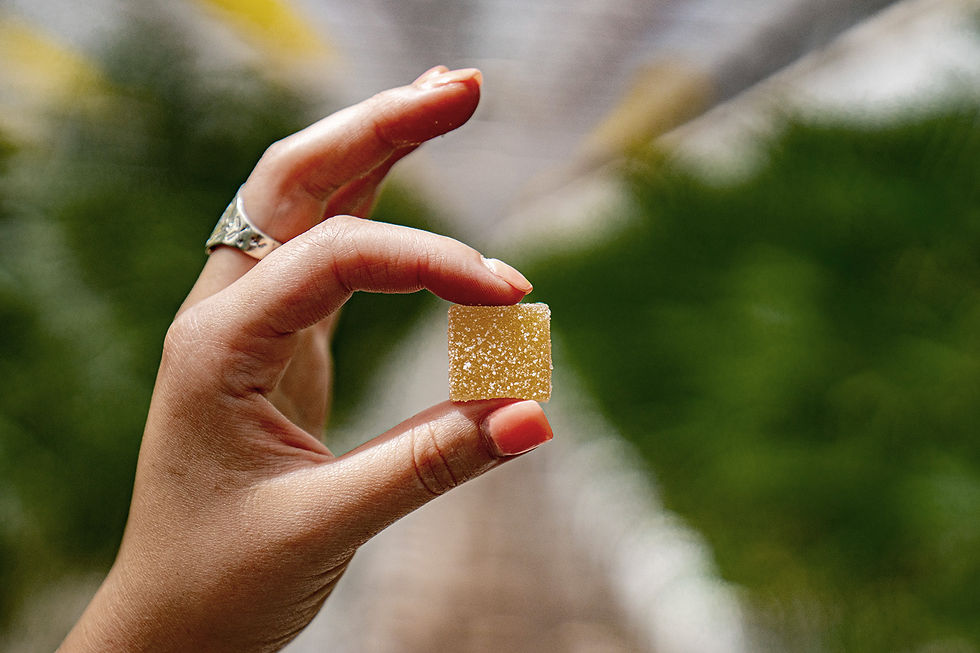5 Ways to Live a Regenerative Lifestyle
- Apr 5, 2022
- 3 min read

Unfortunately, sustainability alone is not enough to restore the damage done to our planet. Similar to the idea of recycling, which isn’t an adequate long-term goal, sustainability “sustains” what already exists without causing future harm to Earth’s systems. It would be an OK approach if we didn’t already have severely damaged ecosystems, but since we do, we need another path to regenerate Earth’s life support systems.
Regenerative practices transcend sustainability to help remediate the relationship between living beings, like humans, and our environment. When you combine both regenerative and sustainable methods, the planet can be supported through both environmental restoration and cultures that are healthy, resilient and adaptable. Regenerative sustainability looks at how our natural systems are impacted by humans and finds ways to regrow, renew or restore.
To go regenerative is to build health into the whole system. You can design regenerative cultures in your business, home and lifestyle which improve your own health, and the health of the community, animals, plants, waters and climate.
Here we explore 5 ways to get started in your own regenerative practices:
#1: Transform your lawn or ornamental garden into a native and/or edible garden
If you have an ornamental garden or lawn, consider replacing most or part of it with native and/or edible plants. Restoring native plant habitat is critical to preserving biodiversity. Native plants work with existing ecosystems and provide shelter and food for wildlife.
Start a little garden! Simply plant a few seeds in a corner of your yard — or, if you’re an apartment-dweller, on your window or porch. You don’t need vast amounts of acres. Just a few square feet can provide enough space to grow a bounty of herbs, fruits, and vegetables.
#2: Shop locally and support regenerative farms in your community
Regenerative farming is a traditional/indigenous method of agriculture that incorporates practices and principles that support local landscapes, improve biodiversity, enrich soil quality, and improve watersheds.
Supporting local farmers is one of the best ways to become more involved in your food system. Many small farmers have regenerative practices. A simple way to find out more is to just ask your local farmers how they’re farming and they’ll be happy to share their farming practices with you.
Supporting your local regenerative farmers is also a great way to help protect and conserve local landscapes. This will protect land in your region from conventional farming and commercial development. Let’s be real. Our current food system does not make it easy (or lucrative) for small farmers to farm regeneratively, which is why your continued support matters more than you may realize.
#3: Purchase clothing made from regenerative textiles
In addition to growing our food regeneratively, there is a movement in the fashion industry to use more regeneratively produced fibers. So, the next time you go to buy a new piece of clothing, take a moment to notice which textiles were used to make it.
Swap those synthetic plastics in clothing for alternative textiles such as recycled/organic cotton, organic hemp, organic linen, or bamboo linen.
#4: Become an advocate: educate yourself and your community
Speaking with others in your community about your passion for nature and environmental justice can go a long way in normalizing those perspectives and sparking curiosity. Supporting the movement through climate protests like Fridays for the Future or joining coalitions that affect change through growing communities are also excellent ways to participate.
#5: Support companies who advocate for regenerative practices
As a collective of consumers, we have the power to create significant change in our food system. If financially possible, supporting companies that invest in regenerative farming is a vote for the way you think business should be run and the type of food system you want to be a part of.
For these reasons, Asha Apothecary has dedicated itself as a company to supporting organic and regenerative farming practices and continues to be an advocate for a sustainable and ethical global food system.
Living the Regenerative Life
So, there you have it – five simple ways for you to get more involved in supporting a regenerative food system, the health of our bodies and the health of our planet in a powerful way. There are many regenerative practices to incorporate in your home, business and lifestyle. Start small and work your way up. What habits will you be trying? Share your ideas or comments below!



Comments